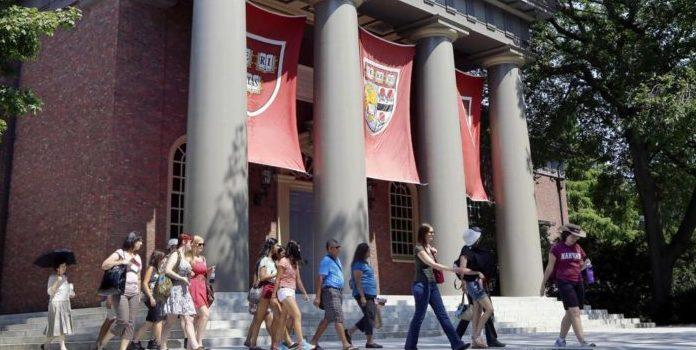(Headline USA) In a pricey stab at virtue-signaling, Harvard University is vowing to spend $100 million to research and atone for its extensive ties with slavery, the school’s president announced Tuesday, with plans to identify and support direct descendants of dozens of enslaved people who labored at the Ivy League campus.
President Lawrence Bacow announced the funding as Harvard released a new report detailing many ways the college benefited from slavery and perpetrated racial inequality.
The report, commissioned by Bacow, found that Harvard’s faculty, staff and leaders enslaved more than 70 black and Native American people from the school’s founding in 1636 to 1783. For decades after, it added, scholars at Harvard continued to promote concepts that fueled ideas of white supremacy.
In a campus message, Bacow said many will find the report “disturbing and shocking,” and he acknowledged that the school “perpetuated practices that were profoundly immoral.”
“Consequently, I believe we bear a moral responsibility to do what we can to address the persistent corrosive effects of those historical practices on individuals, on Harvard, and on our society,” he wrote.
Alongside its findings, the 130-page report includes recommendations that Bacow endorsed. The university will create a new $100 million fund to carry out the work, which include building stronger relationships with historically black colleges and expanding education in underserved areas.
It also called on Harvard to identify the direct descendants of enslaved people and engage them through dialogue and educational support.
“Through such efforts, these descendants can recover their histories, tell their stories, and pursue empowering knowledge,” the report said.
Harvard is among a growing number of U.S. universities working to acknowledge and reckon with their historical ties to slavery.
Harvard began its work 2016 when former President Drew Gilpin Faust acknowledged that the school was “directly complicit in America’s system of racial bondage” and created a committee to study the topic. Bacow commissioned the new report in 2019, building on that work.
“The Harvard that I have known, while far from perfect, has always tried to be better — to bring our lived experience ever closer to our high ideals,” Bacow wrote. “In releasing this report and committing ourselves to following through on its recommendations, we continue a long tradition of embracing the challenges before us.”
Adapted from reporting by the Associated Press

